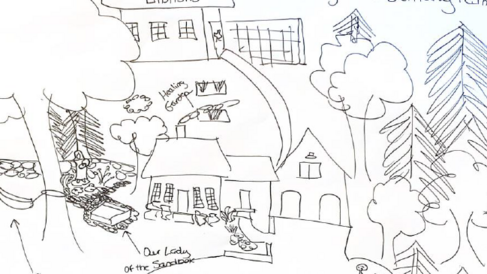Approach and content

An interactive course
The Summer School is taught by University of Cambridge academics. Building on our extensive research and teaching expertise, we will guide you through a mixture of lectures, seminar discussions, interactive workshops and immersive exercises. You will have a chance to engage in the Cambridge tradition of Scriptural Reasoning, visit an online photographic exhibition of Shared Sacred Landscapes, try out your own talents for visual research, and create your own inter-faith archive!
The course structure has been revised, based on feedback from our previous participants.
Each day includes a three-hour scheduled teaching session, hosted by your convenors. During these sessions, you will have lectures, masterclasses, and workshops with different members of the teaching team. At the end of each session, you will have chance to question the convenors and to continue informal conversations with other participants.
Between sessions, you will have exercises to complete, and the opportunity to interact with one another in the online learning environment.
Course content
What will you learn about? Some of the topics that we consider are:
Plurality & diversity
- religious plurality & social change;
- faith-based responses to life elsewhere in the universe;
- indigenization;
- migration;
- empathy;
- shared & syncretic landscapes
Engaging traditions
- Scriptural Reasoning;
- religion & gender;
- visions of hell;
- religion & ways of seeing
Creativity & change
- theology & poetry across religious traditions;
- music;
- photography & cognitive mapping;
- religious conversion;
- religious encounters in history and today
Violence & the sacred
- religion & conflict;
- problems of violence and evil;
- colonialism, nationalism & religion;
- scripture & violence
Interfaith methodologies
- methods & methodologies for the research of interfaith and inter-religious relations: archival, visual, ethnographic, phenomenological, hermeneutic
Image: 'Religion on Bethany Farm'. Detail from a sketch by alumna Cynthia Lambert-Cheshire, created as part of a mapping exercise during the 2021 Summer School.
